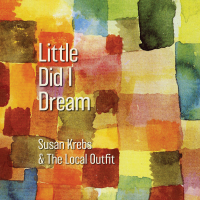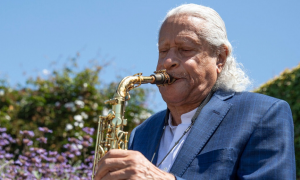Home » Jazz Articles » Interview » John Scofield: Peaceful Pursuits
John Scofield: Peaceful Pursuits


Pat Metheny
guitarb.1954

Bill Frisell
guitar, electricb.1951
Still, despite its largely relaxed nature and slower tempos, A Moment's Peace manages to come to a near boil at times— no surprise, given the powerful group that ultimately converged for a couple days in January, 2011, at Sear Sound in New York City: keyboardist

Larry Goldings
organ, Hammond B3b.1968

Scott Colley
bassb.1963

Brian Blade
drumsb.1970
"This one had some bumps along the way," Scofield explains. "I started off wanting to do a record with [Norwegian keyboardist]

Bugge Wesseltoft
pianob.1964

Sidsel Endresen
vocals"Then, I thought, I'd been playing with [pianist]

Mulgrew Miller
piano1955 - 2013
"Then the project started to change in my head too, because when you bring in Larry, there's a lot of stuff that he and I do together, and stuff that he does and really excels at, that I wanted to feature—and that also included playing the organ. Brian Blade on drums had always been the guy I'd wanted to play with, and Scott Colley on bass; they were always the rhythm section. But I think, in a way, having Larry was just perfect for the record; he brings so much to it."
The closest thing Scofield has done to A Moment's Peace was Quiet, his first recording for Verve in 1996, after a seven-year run on the equally prestigious Blue Note label. But while Quiet was, with Scofield limiting himself to acoustic guitar, an album of gentle beauty, it was by no means a ballads record. In addition to being a mix of originals and covers, A Moment's Peace, on the other hand, is one—though with Scofield back on his main electric axe, there are places where the temperature can't help but rise.
With the playing on A Moment's Peace never anything less than stellar, its relaxed vibe is also reflected in the way it was recorded. "We had a one-day rehearsal," says Scofield. "I thought about what tunes to do on this record for months, but as soon as I knew it was going to be Goldings—which was probably two months before we recorded—I honed the song list and sent the guys the lead sheets, and we talked about it a bit. I sent out a couple of recordings of the songs, but it was only the original stuff that I wrote—a live recording of me playing them with my trio with [bassist]

Steve Swallow
bassb.1940

Bill Stewart
drumsb.1966
"We did it in two day long days and then mixed for a couple days," Scofield continues. "I think that a lot of the success for a jazz recording has to do with how well it's recorded; that's the final touch. I'm really happy with [engineer] James Farber's work. He decided on the studio to use, Sear Sound—they have old analog equipment—and it was James who decided how to place everybody in the room. With his choice of microphones and all kinds of really subtle things I don't really understand, he really captured it."
"We had to put the Leslie speaker [for the organ] in a booth, so when we recorded with the Leslie, we had to use headphones," Scofield concludes, "but we were all in a room together. But one guy was in one corner and another guy in another. The bass and drums were not isolated in different booths; my guitar amp was in a booth, but the doors were open—they're floor-to-ceiling doors—so we were all in the same room. We still used headphones, though I think Scott and Brian were able to play with one headphone on and one off, which really helped them to maintain this kind of rhythm-section thing. And Farber thinks there's nothing wrong with a little leakage [between the instrumental tracks], unless you want to change stuff and do overdubs—and I do too; it fattens things up a bit.
Song Choices
While plenty of jazz artists have covered
The Beatles
band / ensemble / orchestra"My wife, Susan, is just about the same age as I am," Scofield continues, "and she also had the same experience with Beatles songs that I did. She knows their book even more than I do, and she recommended 'I Will.' It was five years ago, and she said, 'Man, you should play "I Will." That could work.' I listened to it and wrote down the music—because I liked the song too, so I had a lead sheet of it—and this is where it gets really freaky. I was trying to think of some other song to bring to A Moment's Peace that was somewhat contemporary, and I was listening to Radiohead songs and some singer/songwriters—I had my daughter helping me—and I couldn't find anything that I really wanted to play, that I just really loved. I was going to the rehearsal for the record, and a bunch of written charts fell on the floor in my studio, and 'I Will' was one of them, from five years before, and it really came to me like: 'Oh, shit, I should play this!'"
When Scofield refers to his wife, it's a unique husband-and-wife team. "Susan and I have been together for 35 years," Scofield explains."She's been my business partner since I started having my own bands around '85. She's responsible for any cool song or album titles that I have, and I must say that those titles are among the best in jazz. She's got great ears, and is my best fan and critic. She blew my mind early in our relationship, when she corrected me on the melody to 'Round Midnight'—she had it right and I was wrong.
"Good jazz managers are very rare, and she is one of the best. Many have asked her to represent them, but she declines. She runs our biz with great acumen. I might be that guy you remember who sounded pretty good 20 years ago but haven't heard of since, if not for Susan. And, most importantly she raised our wonderful kids (Jean, 30, advertising music producer, and Evan, 24, author and poet) while I was on tour breaking strings."
Another unusual song choice on A Moment's Peace is "Lawns," a rarely recorded song from a jazz composer whose material has been heavily covered. The song first appeared on pianist/composer

Carla Bley
piano1938 - 2023

Steve Swallow
bassb.1940
"It just moved me," Scofield continues. "One thing is I could just sit down and play it; it was simple enough that I could get right into it, into the melody. But the song is incredible—I see it as a rock ballad, or a rock anthem, like [Derek and The Dominos'] 'Layla,' or [

Stevie Wonder
vocalsb.1950
Another of A Moment's Peace's highlights is Scofield's take on

Abbey Lincoln
vocals1930 - 2010
Coming to Jazz via Blues ... and The Beatles
Developing a recognizable voice, a distinctive sound, is a subject that Scofield addresses directly—and simply. "I heard [bassist]
Charlie Haden
bass, acoustic1937 - 2014
"I accepted that early on," Scofield continues. "I understood that, and it was the thing that attracted me to jazz—it was this incredibly personal art form, and the greats of jazz were great because they were individuals. It allowed for imperfection—all these great people, like

Thelonious Monk
piano1917 - 1982

Bob Dylan
guitar and vocalsb.1941

Jimi Hendrix
guitar, electric1942 - 1970
"When I was 12, it was The Beatles," Scofield concludes, "but at that same time, folk music had become incredibly popular, and that sort of thing went along with guitar. There were shows on TV like Hootenanny, and folk music was a big deal, and it crossed over [into rock], so that was part of it too, and I liked that. But I'm talking about when I was 12; I mean, I wasn't a hip kid—at that point I wasn't looking for alternative culture. It was mainstream stuff, and it was great, really beautiful music. And through The Beatles and folk music, I got aware of blues and black music. I'd always loved the pop music that was black, and I remember loving

Louis Armstrong
trumpet and vocals1901 - 1971

Mahalia Jackson
vocals1911 - 1972

Jeff Beck
guitar1944 - 2023

Muddy Waters
guitar1915 - 1983
Perhaps not surprisingly, Scofield went from being a blues snob to being a jazz snob once he enrolled in Boston's Berklee College of Music, but before that he still had a road to travel. "A funny thing happened to me—or perhaps it was pretty natural," Scofield begins. "I had been a blues purist, and into rock. I was actually into music from before The Beatles. I listened to the radio, and I loved all those songs—Ricky Nelson, doo-wop music, Elvis [Presley], The Four Seasons, and all the weird stuff that was coming out of New York—though I just kinda liked them in a kid way. I was a music maniac, and I played in a band. From 12 until 16, I played in high school bands, and we played all the top-40 stuff. And then the Cream and Hendrix and the whole San Francisco thing came in, but I was more into Cream and Hendrix, and I'd always been a soul music devotee, up until 1970. Woodstock was in 1969, and I had a ticket to go, but I had an after-school job, and couldn't go until Saturday. On the Friday, the New York Turnpike was closed down, and my father said, 'Do you really want to go to a thing you can't even get into?' So I didn't go, like a dummy."
"But I'd been to the Fillmore East—I'd heard the [Grateful] Dead, and I loved Jeff Beck; Hendrix I loved—I heard him a lot; Cream I loved, with [Eric] Clapton," continues Scofield. "But, man, I was mainly into going to hear

B.B. King
guitar, electric1925 - 2015

Howlin' Wolf
vocals1910 - 1976

John Coltrane
saxophone1926 - 1967
"I went for two-and-a-half years," concludes Scofield. "I started in September, 1970. I was in Boston, and there was this whole scene there, with the New England Conservatory and Berklee, and all the musicians that were there. I started to play gigs on the local scene, and stayed there until January of '75, when I moved to New York City."
Scofield caught an early break, playing with baritone sax legend

Gerry Mulligan
saxophone, baritone1927 - 1996

Chet Baker
trumpet and vocals1929 - 1988

Ron Carter
bassb.1937

Bob James
pianob.1939

Harvey Mason
drumsb.1947

Terumasa Hino
trumpetb.1942

Richie Beirach
pianob.1947

George Mraz
bass1944 - 2021

Joe La Barbera
drumsb.1948
"We recorded it in the summer of '77, and the Live record was recorded in November," Scofield continues. "It became East Meets West when it was reissued a few years later by Blackhawk; they bought it and felt it needed a name. It was with Hino and his brother, Motohiko, on drums. What happened was I moved to New York in '75 to join

Billy Cobham
drumsb.1944

Dave Samuels
vibraphone1948 - 2019
"So I did that in November, '74, and then I moved to New York," continues Scofield. "I was gonna move there anyway, but Cobham called me. I'd met him, and he hired me to be in his band, which was this incredible thing because it was the top band in the land—the

Brecker Brothers
band / ensemble / orchestra
Randy Brecker
trumpetb.1945

Michael Brecker
saxophone, tenor1949 - 2007
"At that point, Hino was living in New York, but he was this big name in Japan—almost like a matinee idol," Scofield concludes. "He was like the Miles Davis of Japan, but he had his own thing. He was—and is—a master jazz musician. So he invited me into the studio to make this record called May Dance (JVC, 1977), and

Tony Williams
drums1945 - 1997

Dave Liebman
saxophoneb.1946
Scofield's career was on a serious upward trajectory. He followed up Live with Rough House (Enja, 1978), a barnstormer of a record that also featured pianist

Hal Galper
piano1938 - 2025

Jack DeJohnette
drumsb.1942

Eddie Gomez
bassb.1944

Nana Vasconcelos
percussion1944 - 2016

Zbigniew Seifert
violin1946 - 1979
Scofield moved to the fledgling Arista/Novus label for Who's Who the next year—his first recording to hint at the fusion jazz he was to pursue soon after, and Bar Talk (1980)—the first to team the guitarist with bassist/friend/mentor Steve Swallow and drummer

Adam Nussbaum
drumsb.1955
Miles Davis ... and Gil Evans
While Scofield's career was certainly off to a great start, a single event gave it its biggest liftoff yet: in 1983, the guitarist was asked to join Miles Davis' band. Guitarist
Mike Stern
guitarb.1953
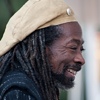
Robert Irving III
keyboardsb.1953

Gil Evans
composer / conductor1912 - 1988
"I played some gigs with Gil's band; he was starting to do gigs at Sweet Basil around that time," Scofield continues, "and he was bugging Miles, because Miles was trying to come up with new music to play with his band. This was still when Mike Stern was in the band, before I joined, and he said, 'Miles, just improvise into a cassette player, then give it to me, and I will take your lines and they can be the heads of the songs.' So that's what Miles did; he had a cassette player that he could just turn off or on when he felt like it, when he heard some stuff on his trumpet. Gil made these lines into pieces, and they were so cool.
"So when I joined the band, Miles already had all this music. There were 10 pieces that Gil had gotten from this one cassette tape that Miles had given him, and Gil distilled these things into these 10 pieces," Scofield explains. "So Miles and Gil were in this process, and he [Davis] got me into the band because he wanted to have a second guitarist. He invited me up to his place the first time, after I'd played a couple gigs with him. And he said, 'OK, you improvise along with these chords,' and Gil had this set of chords. And so it was Gil and Miles, both on a Fender Rhodes; Miles was playing the chords and Gil was playing the bass line, and I was improvising over the top. We played for 15 minutes over this chord progression, and that became a tune called 'It Gets Better.' And I think it was really that they wanted to use me in the same way that Miles and Gil had been working on Miles' compositions—they just added me to it. had been working on Miles' compositions—they just added me to it.
"Then we went in the studio, and it was only like a couple weeks later, and there's this written music that we were playing. And Gil was there—he brought in the charts—and he said, 'You know that thing you improvised on over Miles' stuff back at his apartment?' And he pointed to the melody, and Miles said, 'Don't tell him that, Gil, he'll get a big head.' So we cut 'It Gets Better,' and I got co-writing credit on that one, because Gil busted Miles. Miles would have probably let it slide and credited it as all his tune or to Miles and Gil."
As things turned out, not only did Evans not receive co-composing credit for "It Gets Better," neither did Scofield, though he was given co-composer credit for the following track on Star People, "Speak/That's What Happened," and the trumpeter gave Scofield even greater recognition on Decoy, where he received co-writing credit on "That's Right," "What It Is" and a revisited "That's What Happened"—the album's entire second side—and sole compositional credit for the title track to Davis' Columbia follow-up, 1985's You're Under Arrest. "Gil should have gotten credit for 'It Gets Better,'" Scofield asserts, "and the stuff we did on Decoy was like that, too. Gil came up with the bass line for 'It Gets Better,' but it's a weird progression—a 12-bar blues that omits the first four bars. Miles, he was a genius, man, he'd just look at something and change it in the most basic way, but it would work, and you'd be going, 'Man, that's so simple, why didn't I think of that?' Well, that's the hallmark of genius—he's the guy who thought of it."
Still, there was likely a very strong reason why Davis didn't credit Evans—and why Evans didn't balk; for personal reasons, Evans had been having difficulties writing, so Davis lent him a tremendously generous helping hand. "Miles gave Gil an apartment on the Upper West Side, put keyboards in there and said, 'OK, Gil, now you can write.' So Gil kinda had two apartments, with one to work in, and I think, maybe, that Gil didn't say anything about the co-writing because of that."
By the time of the recording sessions for You're Under Arrest, Scofield had been on a writing spree. "I'd written a bunch of tunes for Miles," Scofield explains, "and I thought maybe he could record them. So I made a demo, where [drummer]

Peter Erskine
drumsb.1954

Darryl Jones
bassb.1961

Don Grolnick
piano1947 - 1996
No Longer a Jazz Snob: Electric Outlet
But all that material didn't go to waste. While Scofield took a break from recording his own records at the start of his tenure with Davis, he did release one record, Electric Outlet, in 1984, under contract with his new label, Gramavision. The impact of his time with Davis can be felt from the opening track—the swinging but absolutely electrified and electrifying "Just My Luck." Scofield explains, "When I came back to my own records, I was electric, man, all the way."It was an unusual record, also featuring drummer

Steve Jordan
drumsb.1957

Pete Levin
keyboardsb.1942

Ray Anderson
tromboneb.1952

David Sanborn
saxophone1945 - 2024
"One of the great things about playing with Miles was that he took me out of my orthodox, mainstream bebop world," Scofield enthuses. "Miles was all about the cool, electric pop/rock music that was happening at the time—he was really coming from there, and so I was listening to a lot of non-jazz records. I was listening to MTV; MTV had just come out, and it was this cool thing where you had access, like a radio, to all this popular music. Certainly The Police were in there, Tina Turner's big comeback record; this was stuff that Miles was into, too. Miles was also into Madonna, but I couldn't get with her [laughs] for some reason. But my wife and I, when MTV came out, we hooked up some good speakers to the TV and thought, 'This is cool.' Of course, you've gotta put this in perspective, but I learned a lot about the current stuff that was happening through MTV. But I also remember the early '80s for blues/rock like the Fabulous Thunderbirds and

Stevie Ray Vaughan
guitar1954 - 1990
Electric Outlet not only grooved harder than anything Scofield had yet released, it signaled increasing sophistication in Scofield as a writer, with tracks like "Pick Hits" not exactly dispensing with conventional form, but instead turning it inside out. "

Weather Report
band / ensemble / orchestraStill, being on the road with Davis, there was little opportunity for Scofield to do any serious gigging under his own name. "I had a few gigs when I made Electric Outlet, Scofield says, "but mainly I played with Miles, so I didn't have tours of my own. I'd make the record and play just a few gigs. I remember [in support of Electric Outlet's follow-up, 1986's Still Warm (Gramavision)] playing at Seventh Avenue South [in New York], the Brecker Brothers' club, and with Don Grolnick. I think we had Erskine on drums, because [album drummer]

Omar Hakim
drumsb.1959

Dennis Chambers
drumsb.1959
Scofield recruited Chambers and Grainger, along with keyboardist

Mitchel Forman
keyboardsb.1956
Tags
Comments
PREVIOUS / NEXT
John Scofield Concerts
John Scofield’s Combo 73
Bach Dancing & Dynamite SocietyHalf Moon Bay, CA

John Scofield, Bill Stewart, Vicente Archer
Boulder TheaterBoulder, CO

John Scofield Trio
Blue Note New YorkNew York, NY

John Scofield Trio
Blue Note New YorkNew York, NY

John Scofield Trio
Blue Note New YorkNew York, NY

John Scofield Trio
Blue Note New YorkNew York, NY

John Scofield Trio
Blue Note New YorkNew York, NY

John Scofield Trio
Blue Note New YorkNew York, NY
Support All About Jazz
 All About Jazz has been a pillar of jazz since 1995, championing it as an art form and, more importantly, supporting the musicians who make it. Our enduring commitment has made "AAJ" one of the most culturally important websites of its kind, read by hundreds of thousands of fans, musicians and industry figures every month.
All About Jazz has been a pillar of jazz since 1995, championing it as an art form and, more importantly, supporting the musicians who make it. Our enduring commitment has made "AAJ" one of the most culturally important websites of its kind, read by hundreds of thousands of fans, musicians and industry figures every month.


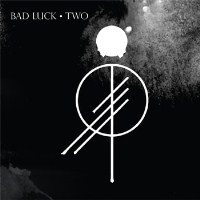
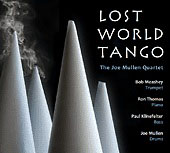

 Buy Now
Buy Now



